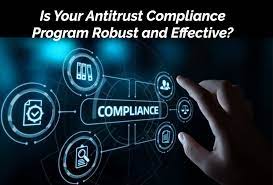CCOs and Criminal Cartel Compliance Programs (Part II of III)

Chief compliance officers have plenty of things to do and risks to manage. CCOs have a unique remit and a set of skills that should be applied whenever needed. While I am not trying to increase CCO workload (and forgive me if I am), CCOs should have responsibility for design and implementation of an effective criminal antitrust compliance program.
For many years, antitrust compliance was the sole province of in-house counsel. This trend developed because of the need for legal analysis and understanding of civil antitrust issues – mergers, civil enforcement for anti-competitive conduct under Section 1 of the Sherman Act, or monopolization conduct under Section 2 of the Sherman Act.
Criminal antitrust enforcement, however, is subject to a per se rule under Section 1 of the Sherman Act. In shorthand, Section 1 authorizes criminal prosecution of companies and individuals for agreements between competitors to fix prices, rig bids, or allocate territories and/or customers. This last sentence covers a whole variety of criminal schemes. The lines between permissible and unlawful activity involving competitors is well defined. Of course, there are situations where arguments can be made but in almost every case Section 1 per se violations are clear. That is why CCOs should take responsibility for this area – CCOs know how to design and implement compliance programs to prohibit activity that is illegal – whether paying bribes, violating sanctions or fixing prices.
CCOs have the benefit of comprehensive guidance from the Department of Justice’s Antitrust Division on effective antitrust compliance programs. The requirements are well known to CCOs; they resemble those for other compliance programs. Of course, the risks are different but the means by which to mitigate the risks are the same as in other specific compliance programs.

Organizations have to take account of the increased risk of enforcement. DOJ’s Antitrust Division is poised to ramp up criminal enforcement. The Antitrust Division had a successful run for years in prosecuting companies and individuals for cartels involving auto suppliers, foreign exchange traders, generic pharmaceuticals, air cargo transportation companies, video displays, electronic capacitors and a variety of other industries. In the last two years, criminal enforcement was down. That is very likely to change in the next few years – the Antitrust Division is being re-invigorated under the leadership of Assistant Attorney General Jonathan Kanter, who is committed to new initiatives, additional resources and a fresh approach to enforcement and promotion of competition.
The Antitrust Division has been aggressively bringing criminal cases against companies that wage-fix and enter into no-poach agreements in relevant labor markets. The Antitrust Division warned companies it was planning to bring criminal cases in this area and it has stuck to its word. More cases are expected.
In this era of aggressive antitrust enforcement, CCOs and in-house counsel have to coordinate compliance efforts. CCOs should take point on detecting and preventing criminal violations stemming from illegal agreements with competitors to restrict competition. In-house counsel should take the lead on potential civil issues and enforcement risks stemming from mergers and other potential anti-competitive agreements.

CCOs have to devote energy to conducting a meaningful risk assessment, adopting or revising policies and procedures, conducting regular training for relevant leadership and personnel, monitoring overall compliance and auditing/testing the compliance program. Illegal collusion can occur in a variety of circumstances, and with the ease of communications between individuals on phones and computers, the risk of illegal agreements between competitors is high. CCOs have to recognize this significant risk and prioritize resources and time in relation to other risks such as bribery, sanctions, data privacy, anti-money laundering and fraud.
While companies moan and groan when subject to an FCPA investigation, take it from me, an antitrust criminal investigation presents serious risks to the organization, requires lengthy and intense internal investigations that involve a variety of enforcement risks in the United States and foreign enforcement agencies. Organizations have to balance these consequences against reasonable expenditures and attention to antitrust compliance programs aimed at preventing antitrust violations from occurring in the first place.
















1 Response
[…] Source link […]